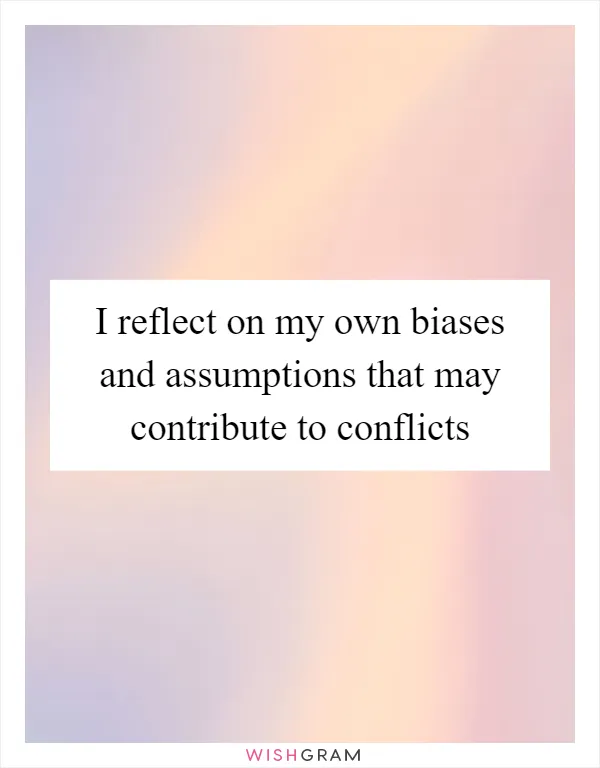I reflect on my own biases and assumptions that may contribute to conflicts
The affirmation "I reflect on my own biases and assumptions that may contribute to conflicts" is a powerful tool for personal growth and conflict resolution. It encourages you to take responsibility for your own actions and thoughts, and to examine them critically in order to identify any biases or assumptions that may be contributing to conflicts in your life.
Reflecting on your own biases and assumptions can be a difficult and uncomfortable process, but it is essential for personal growth and development. It requires you to be honest with yourself and to acknowledge that you may not always be right or have all the answers. It also requires you to be open to feedback and to be willing to learn from your mistakes.
One of the biggest challenges in reflecting on your own biases and assumptions is recognizing them in the first place. We all have biases and assumptions that we may not even be aware of, and they can be deeply ingrained in our thoughts and behaviors. However, by taking the time to reflect on your own thoughts and actions, you can begin to identify patterns and behaviors that may be contributing to conflicts in your life.
Once you have identified your own biases and assumptions, the next step is to work on changing them. This can be a difficult and ongoing process, but it is essential for personal growth and conflict resolution. It requires you to be open to new ideas and perspectives, and to be willing to challenge your own beliefs and assumptions.
One way to work on changing your biases and assumptions is to seek out new experiences and perspectives. This can include reading books or articles from different viewpoints, traveling to new places, or engaging in conversations with people who have different backgrounds and experiences than you.
Another way to work on changing your biases and assumptions is to practice empathy and active listening. This means putting yourself in someone else's shoes and trying to understand their perspective, even if you don't agree with it. It also means listening actively to what they have to say, rather than just waiting for your turn to speak.
